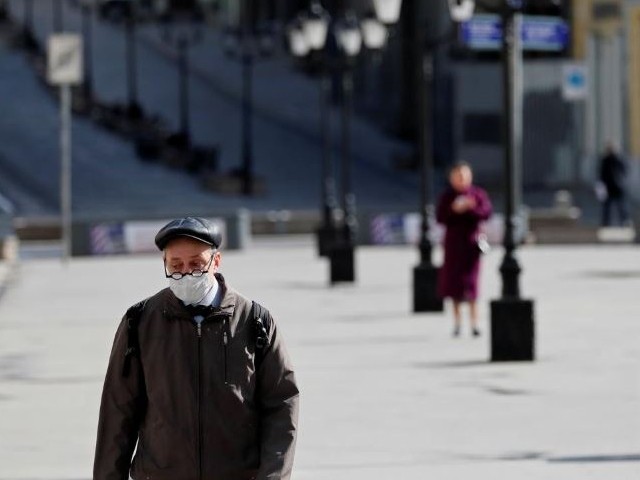Lessons from the pandemic crisis
by Dr Moonis Ahmar

Nearly six months after the outbreak of Covid-19, it is time to analyse what lessons can be learned by the world in terms of its physical, economic, social and psychological fallout. With more than 357,000 deaths since December 2019, around two-thirds of deaths have taken place in Europe and the United States. Trillions of dollars of economic losses because of lockdowns have caused unprecedented unemployment and enormous economic hardships to people.
Will then the world learn lessons from the pandemic? Will there be any qualitative change in the policy of those who despite being medical experts failed to find a cure for Covid-19? What lessons can Pakistan learn from this pandemic which has destabilised its economy and way of life?
Before Covid-19 struck the world, life was normal. Human quest in the world of science had reached its peak to the extent that NASA and other organisations had planned to send missions to Mars to colonise the red planet. Human arrogance and lust for resources led to environmental catastrophe in the form of global warming and climate change. The abuse of force and military interventions caused unprecedented human casualties and displacement of people. With more than $700 billion in military expenditures, the US under Trump looked invincible — but the pandemic proved how hollow the superpower really is. The US now ranks number one with over 102,000 casualties and its massive technological and military power failed to cope with the virus. Same is the case with other First World countries like Britain, France, Italy, Belgium and Spain with another 100,000 casualties. Pakistan has over 62,000 cases with more than 1,276 deaths and the country, while passing through different phases of lockdown, is now highly vulnerable to the spread of coronavirus.
As things stand today, one can figure out four tentative lessons which the world in general and Pakistan in particular can learn from the colossal losses caused in the last five months.
First, it is human health which needs to be prioritised not only by the governments but also by people at large. The intensity of the pandemic has exposed fault-lines in health systems as First World countries despite having better medical facilities, failed to preclude huge physical losses. Brazil is an exception in the Third World where more than 23,000 deaths have taken place. China and Iran are the other two countries where large-scale Covid-19 casualties have taken place. By taking steps to improve health and immunity systems, one can expect other populous countries like India, Indonesia, Pakistan and Nigeria to protect their people not only from the coronavirus but also from other preventable diseases.
Second, the lesson that science has its limits in dealing with viruses needs to be taken seriously. More than five months have passed since the outbreak and there is still no vaccine. Since the Spanish flu, remarkable progress occurred in medical science whereby various diseases like yellow fever, smallpox, chicken pox, etc, have almost been eradicated. Yet, the world’s top scientists, despite all their efforts and resources are unable to cope with Covid-19. If science has its limits in finding solutions to various diseases, it means that the invincibility of divine power in shaping things cannot be denied. Therefore, a fundamental lesson which can be learned from the current pandemic is that science cannot be taken for granted as a solution to all issues. It doesn’t mean that science should be relegated or undermined. But when divine power is invincible, science is subservient to it. Moreover, while science has made miraculous discoveries in the last 200 years, it has failed to deal with one of the most lethal threats to mankind — Covid-19. The cream of scientists primarily belonging to the West and elsewhere are frustrated as there has been no breakthrough in finding a cure.
Third is the lesson that everyone is vulnerable, and the virus makes no distinction in class, religion or place of origin. The fact that two-thirds of the casualties have taken place in the prosperous First World countries is sufficient to rule our conspiracy theories implicating Bill Gates as the sponsor of the coronavirus to target Muslims and eradicate their genes, shaping their faith. Allegations and conspiracy theories to find a scapegoat for spreading Covid-19, either in the form of Bill Gates or China, will not help because it reflects our own incompetence and lack of perseverance in dealing with the crisis.
The failure of an effective leadership at the global level to deal with the pandemic is a major lesson one can learn through the irresponsible approach of US President Donald Trump to understand the crisis’ dynamics, and of other powers including China to properly manage the crisis. Trump’s confrontation with China, Iran and WHO and his failure to attend the EU-led summit to discuss strategy to deal with Covid-19 reflects the fault lines in American foreign policy. As a result, the leadership vacuum is further aggravating the fallout of the pandemic.
Fourth, those wielding power have used the pandemic by imposing undue restrictions, strengthening their grip over power, silencing dissidents and creating fear among people in order to serve their vested interests. This is true not only globally but also in the case of Pakistan. The people have suffered the worst from this crisis as they have lost their jobs because of lockdowns and their freedom has been curbed severely in the name of following SOPs and maintaining social distancing. Under the cover of SOPs and maintaining social distancing, the Sindh government has not allowed public transport to operate since the third week of March causing enormous hardships to the common people. The poor and lower middle classes have borne the brunt of restrictions as even now the Sindh government has not allowed several small business and shops to reopen. Regardless of that, the number of people infected from the virus in Sindh is the highest as compared to other provinces where the lockdown has been considerably eased. The social and psychological disorder has also negatively affected people’s way of life.
The lesson one can learn here is that it is time to find plausible solutions to deal with this existential threat instead of making people’s lives miserable. Otherwise the perception that humans never learn will hold true.
Published in The Express Tribune, May 29th, 2020.